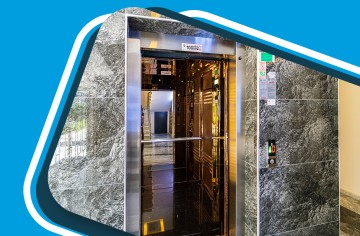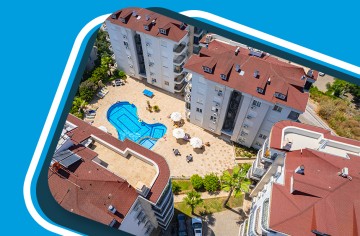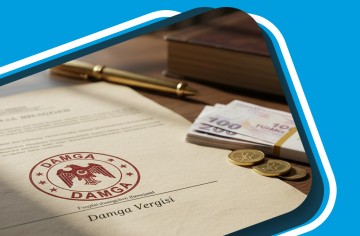
Müteahhit (contractor) – key role in Turkish real estate

Müteahhit (pronounced mew-te-ah-hit) is a Turkish term for a contractor or construction company responsible for building, renovating, or managing real estate projects in Turkey. This role is central to property development, whether for residential, commercial, or infrastructure projects.
A müteahhit typically oversees the entire construction process, from securing permits and hiring subcontractors to ensuring compliance with Turkish building regulations (İmar Kanunu). They may work directly with landowners, investors, or government entities, depending on the project’s scale.
In Turkey, müteahhits must be licensed by the Ministry of Environment, Urbanization, and Climate Change (Çevre, Şehircilik ve İklim Değişikliği Bakanlığı). Their license class (ranging from 1st to 5th degree) determines the size and type of projects they can undertake. For example, a 1st-degree müteahhit can handle large-scale developments like skyscrapers or shopping malls, while a 5th-degree may focus on smaller residential builds.
The term is often used interchangeably with inşaat firması (construction firm), though müteahhit specifically refers to the licensed individual or entity leading the project. Foreign buyers in Turkey frequently encounter this term when purchasing off-plan properties (inşaat halinde satış), where the müteahhit guarantees delivery as per the sales contract.
| Turkish Synonym | English Equivalent | Notes |
|---|---|---|
| İnşaat firması | Construction company | Broader term; may include multiple müteahhits. |
| Yüklenici | Contractor (general) | Used in legal contracts; less specific than müteahhit. |
| Taahhüt şirketi | Contracting firm | Formal term for licensed entities. |
| Ustabaşı | Foreman | Supervises workers but lacks licensing authority. |
| Mimar | Architect | Designs projects; collaborates with müteahhits. |

A contractor responsible for construction projects.
A müteahhit is a Turkish term for a construction contractor or builder. They oversee residential, commercial, or infrastructure projects, from planning to completion.
Müteahhits manage labor, materials, permits, and compliance with Turkish building codes (Yapı Denetim Yasası). They often work with architects, engineers, and municipal authorities. Foreign buyers typically interact with them during off-plan purchases or renovations.
Müteahhit builds; emlakçı sells or rents properties.
A müteahhit is a constructor who builds or renovates properties. An emlakçı is a real estate agent who buys, sells, or rents properties on behalf of owners.
Müteahhits handle physical development (e.g., apartments, villas, infrastructure). Emlakçıs handle transactions (listings, negotiations, contracts). Some müteahhits also sell their own projects, but they’re legally distinct roles.
Foreign buyers often work with both: the emlakçı to find property and the müteahhit for construction or customization.
Delays, bankruptcy, or substandard work are key risks.
Buying off-plan from a müteahhit in Turkey carries risks:
1. Project delays: Common due to funding issues or permit problems. 2. Bankruptcy: If the müteahhit fails, buyers may lose deposits. 3. Quality issues: Substandard materials or deviations from plans.
Buyers should verify the müteahhit’s financial health. Completed projects reduce risk.
Check their license, past projects, and legal status.
To verify a müteahhit’s legitimacy in Turkey:
1. License check: Request their license number and verify via the Ministry’s portal. 2. Past projects: Visit completed sites or request references. 3. Legal status: Search for lawsuits via UYAP (Turkish judicial system).
For off-plan purchases use a local lawyer who can cross-check ownership of the land and permits for the project.
Yes, mandatory 5-year warranty for structural defects.
Under Turkish law (Law No. 634), müteahhits must provide a 5-year warranty for structural defects (e.g., foundation, load-bearing walls) in new builds. For non-structural issues (e.g., plumbing, electrical), the warranty is 2 years.
The warranty starts from the date of occupancy permit (iskan). Buyers must report defects in writing to the müteahhit. If unresolved, they can file a lawsuit within the warranty period.
Foreign buyers should ensure the warranty is explicitly stated in the sales contract.
Also read


Taksit (installment) – what it means in Turkish real estate

Teklif (Offer) – Understanding the Term in Turkish Real Estate

Havuz (Swimming Pool) – Meaning in Turkish Real Estate

Kat mülkiyeti kanunu (Condominium Ownership Law)

Asansör (Elevator) – What It Means in Turkish Real Estate

Bina (Building) – Understanding Turkish Real Estate Terms

Damga vergisi (stamp duty) in Turkey – explained for buyers

Emlak (Real Estate) in Turkey – A Simple Explanation for Foreign Buyers
